
Rabab Abdulhadi
1955-
Rabab Abdulhadi, born in 1955 in Palestine, is an activist and scholar contributing to the struggle for Palestinian self-determination and the well-being of Palestinian women. She was the Director of Political and International Relations at the Middle East Research Center in New York. She helped found the Union of Palestinian Women's Associations in North America during the first Intifada, or Palestinian uprising. At last contact, she was conducting research for the Gender and Sexuality Studies Center, in the Global South Project.
Keywords: reproductive rights, rural women and land reform
Media: Transcript (English), Video, Bibliography, YouTube Video, Name Pronunciation Audio

Dr. Joyce Agofure
Dr. Joyce Agofure was born on April 3, 1978, in Benin City, the capital of Edo State, in southern Nigeria. She first attended primary school in Benin City and continued her education, obtaining her first degree in English and Education. She then entered the Masters’ Degree Program at Ahmadu Bello University-Zaria where she received a Masters’ Degree and subsequently a PhD in English literature. She was particularly interested in eco-feminism and the consequences of climate change on the lives of women. As a senior lecturer and the Coordinator of Postgraduate Studies in the Department of English at Ahmadu Bello University, she teaches courses which include Introduction to Literature, African Literature and Literature Theory. She assigns readings in Nigerian women’s literature, some of which consider the challenges faced by women which she discusses in these courses. She was able to expand her knowledge of eco-feminism, particularly the ways that women are seen as natural beings and the environment is characterized as feminine, during her tenure as a Fulbright Scholar at the University of Idaho. This experience has enabled her to become involved in developing a course on Eco-Feminism to be taught in the Department of English at ABU.
Keywords: environment, academia and women's studies, art/writing as activism
Media: Name Pronunciation Audio, Transcript, Video, YouTube Video

Bertha Inés Cabrales
Bertha Inés Cabrales was born in 1943 and joined the Sandinista Front during college and in the late 1970s was sent to Sweden to organize Solidarity events in Europe. She was active in the Luisa Amanda Espinoza Association of Nicaraguan Women and at last contact was head of the Collectivo de Mujeres Itza, an organization that provides sexual and reproductive health counseling as well as legal assistance for victims of gender-based violence.
Keywords: gender and health, media, gender-based violence, reproductive rights, rural women and land reform
Media: Transcript (English, Spanish), Video (English, Spanish), Bibliography, YouTube Video (English, Spanish) Name Pronunciation Audio

Josephine Effah-Chukwuma
Josephine Effah-Chukwuma, born in Lagos in 1966, is a specialist in gender and development and a human rights advocate. She received her B.A. in English, and her M.A. in development studies with a special focus on women’s issues, from the Institute of Social Studies in the Hague, the Netherlands. She worked for a few years for the Constitutional Rights Project (CRP), and then in 1999 established Project Alert on Violence Against Women, a not-for-profit that addresses gender-informed abuses The Project provides counseling, advocacy, and temporary shelter for abused persons. The organization opened the first shelter for abused/assaulted women and girls in Nigeria in 2001.
Keywords: community activism, gender-based violence, reform of domestic/family roles, environment, feminist conferences
Media: Name Pronunciation Audio, Transcript, Video, YouTube Video

Marilda de Souza Francisco
Marilda de Souza Francisco, born in 1962 in Angra dos Reis, grew up in the Quilombo community of Santa Ria de Bracuí. She has been active in community organizing all of her life and she has worked in the schools of Angra for many years, promoting education and community development in this rural community of black Brazilians who are descendants of slaves.
Keywords: education, rural women and land reform, racial identity
Media: Transcript (Portuguese, English), Video, YouTube Video (Portuguese, English Subtitles) Name Pronunciation Audio
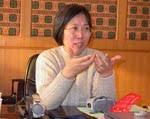
Gao Xiaoxian
Gao Xiaoxian, born in 1948, is Secretary General of the Shaanxi Research Association for Women and Family. Working as an official in the Shaanxi Provincial Women's Federation, Gao has been a pivotal figure in establishing this influential non-governmental women's organization, and has also been involved in rural development projects.
Keywords: feminist conferences, gender and health, academia and women's studies, education, rural women and land reform
Media: Transcript (English, Mandarin), Video (English, Mandarin), Bibliography, YouTube Video (Mandarin, English Dubbed), Name Pronunciation Audio

He Zhonghua
He Zhonghua, born in 1937, is a professor of literature from the Naxi ethnic minority. She established a women's studies center in the Academy of Social Sciences and a minority women research center in Yunnan. She has worked on many projects ranging from improving ethnic minority women's health to empowering women to participate in rural development.
Keywords: feminist conferences, environment, academia and women's studies, education, intersectionality, rural women and land reform
Media: Transcript (English, Mandarin), Video (English, Mandarin), Bibliography, YouTube Video (Mandarin, English Dubbed), Name Pronunciation Audio
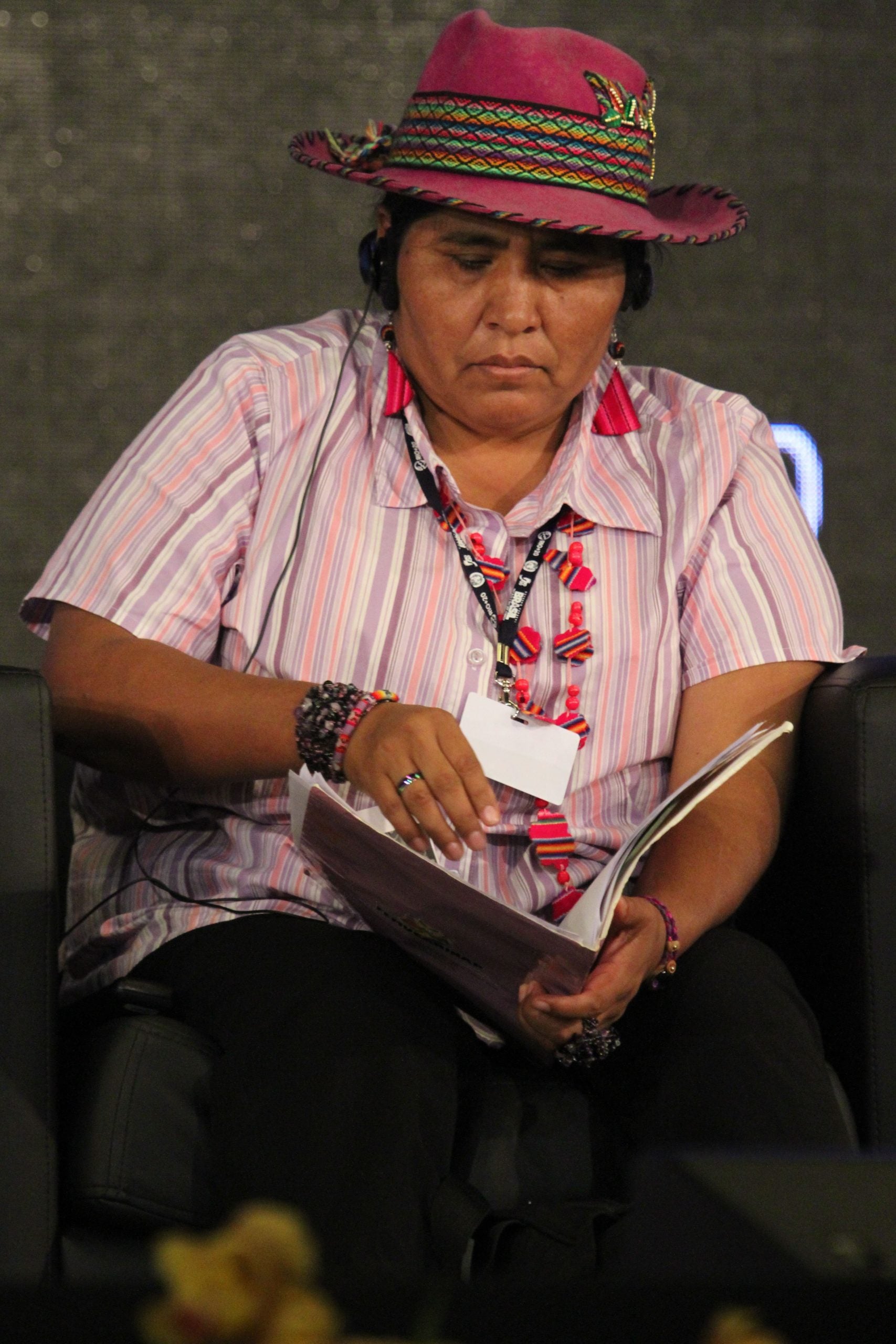
Lourdes Huanca Atencio
Lourdes Huanca Atencio, born in 1968, is founder and president of the National Federation of Female Peasants, Artisans, Indigenous, Native and Salaried Workers of Peru (FENMUCARINAP). The organization was founded in 2006 with the purpose of defending and fighting for the rights of women in Perú. Rooted in an ancestral cosmovisión (or worldview) of their indigenous communities, a central struggle has been the fight for their subsistence, in maintaining land, water and seed sovereignty. The main goals include: (1) control and defense of the territory of the female body, which is often violated; (2) the political, economic, social and cultural empowerment of women who sustain society, yet whose work and contributions are not recognized; (3) defending the sovereignty of indigenous women’s subsistence, which is land, water and seeds, because a campesina (or rural woman) without those things has no choice but to move to city where she then becomes extremely impoverished. Lourdes is one of five women promoters of human rights who were recognized by the Ministry of Justice and Human Rights in Perú during a ceremony held in the framework of the commemoration of International Women's Day in March 2020. She has also participated in numerous UN initiatives (e.g., as a regular participant in the United Nations Framework Convention on Climate Change) and is also a member of the Fund for the Development of Indigenous People of Latin America and the Caribbean (FILAC).
Keywords: community activism, rural women and land reform
Media: Transcript (Spanish, English), Video, YouTube Video (Spanish, English Subtitles) Name Pronunciation Audio
Interviewee Photo Credit
By theverb.org. https://www.flickr.com/photos/71015487@N03/7382740578/in/photolist-cfotyE. Creative Commons. Accessed 2 February, 2021.

Li Huiying
Li Huiying, born in 1957, is Professor of Sociology and assistant Director of the Women Research Center of the Central Party School, providing training for senior level Chinese Communist Party officials. She has succeeded in incorporating courses on gender studies in the official curriculum and runs feminist workshops for faculty nationwide.
Keywords: feminist conferences, academia and women's studies, education, politics and the law, reform of domestic/family roles, rural women and land reform
Media: Transcript (English, Mandarin), Video (English, Mandarin), Bibliography, YouTube Video (Mandarin, English Dubbed), Name Pronunciation Audio
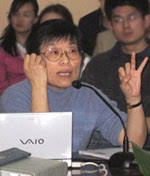
Liu Bohong
Liu Bohong, born in 1951, is Deputy Director of the Institute of Research on Women of the All-China Women's Federation, circulating feminism and promoting gender-awareness in the Chinese government system, notably formulating national programs that implement the 1995 UN Platform for Action.
Keywords: academia and women's studies, education, gender-based violence, politics and the law, reproductive rights, rural women and land reform
Media: Transcript (English, Mandarin), Video (English, Mandarin), Bibliography, YouTube Video (Mandarin, English Dubbed), Name Pronunciation Audio
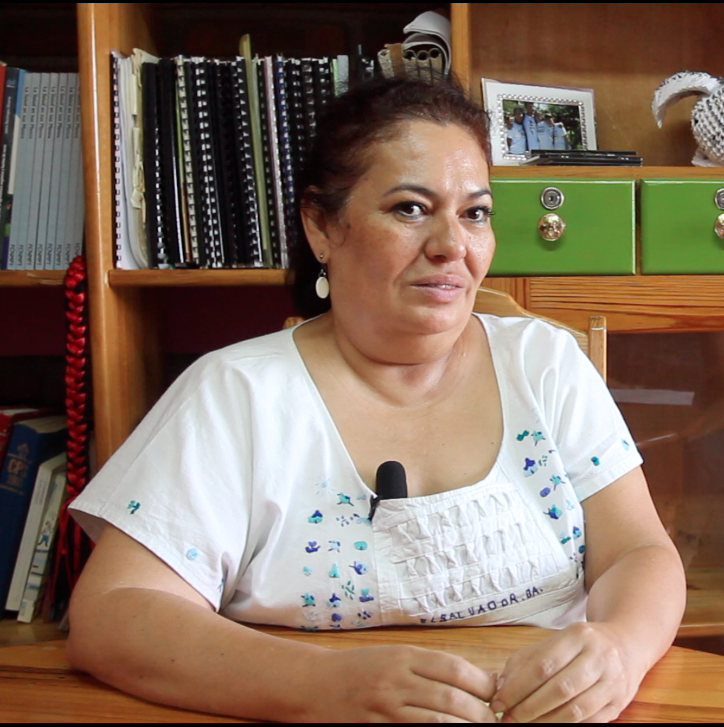
Diana Martínez
Diana Martínez was born in 1958, and became active in the Sandinista movement as a student, finishing high school in Guatemala and becoming a Marxist. After the Sandinista Revolution, she returned to Nicaragua and worked in the textile industry based on her belief in the importance of laborers, and in an effort to rid herself of her bourgeois past. She has been involved with feminist research in Nicaragua, and at last contact was a director at La Fem, a coffee cooperative for women in Estelí.
Keywords: gender and health, rural women and land reform, reproductive rights, academia and women's studies
Media: Transcript (English, Spanish), Video, Name Pronunciation Audio
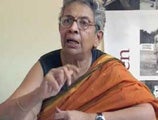
Vina Mazumdar
1927-2013
Vina Mazumdar (1927-2013) was a professor and past fellow of the Indian Institute of Advanced Studies, serving on the Committee on the Status of Women in India and later directing the Programme of Women's Studies at the Indian Council of Social Science Research. She founded the Centre for Women's Development Studies and became its Chairperson. The GFP staff note with sadness the death of Vina in 2013. To learn more about her contribution to women's movement in India, read her public obituary written in The Hindu Paper.
Keywords: feminist conferences, academia and women's studies, rural women and land reform, politics and the law
Media: Transcript (English), YouTube Video, Video, Bibliography, Name Pronunciation Audio
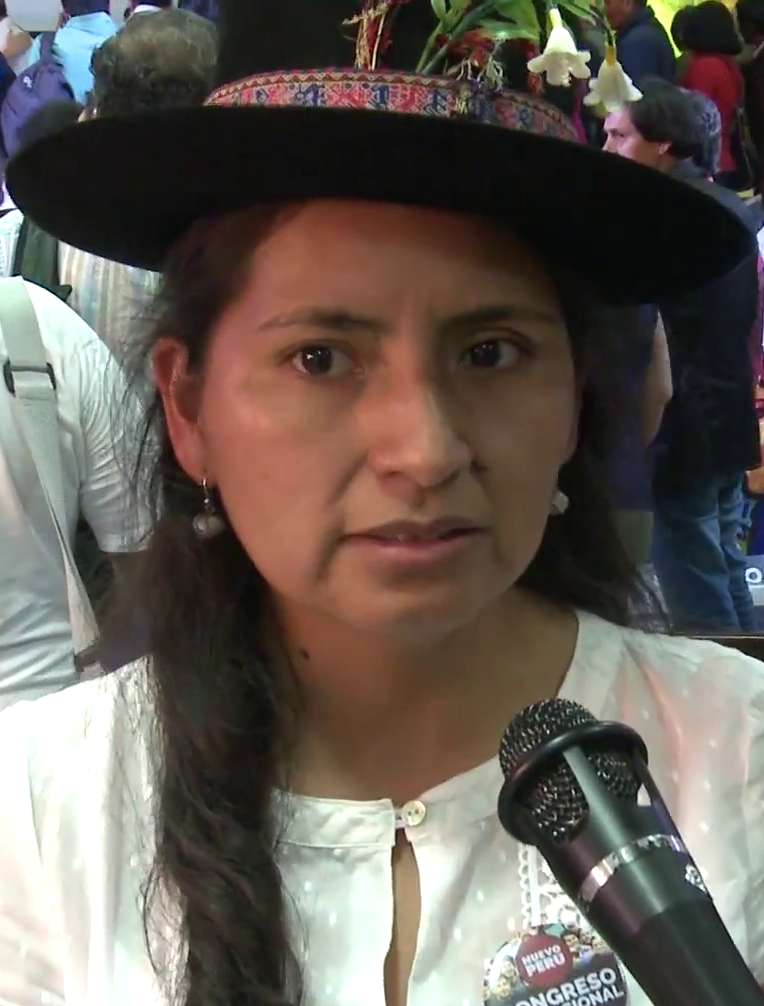
Tania Pariona Tarqui
Tania Pariona Tarqui, born in 1984, is an indigenous activist, Quechua leader, feminist, politician, human rights activist and former Congressperson. As an activist, she works to establish social equality for indigenous youth and women. She began her community work with National Movement of Organized Working Children and Adolescents of Peru (MNNATSOP), an overarching umbrella for many children’s working groups. She was chosen as a Latin American delegate and had her first experience of international representation at age 15 at the “World Summit for Children” at the United Nations in New York. She studied Social Work at the San Cristóbal of Huamanga University, graduating in 2009, and then Human Development at the Pontifical Catholic University of Peru in Lima. She went on to work with the Centre for Indigenous Cultures of Peru (CHRIAPAQ), collaborating on several projects aimed at indigenous youth and women nationally and internationally. In 2010, with Andean and Amazonian sisters, she helped form the Organización Nacional de Mujeres Andinas y Amazónicas de Perú, (ONAMIAP) that promotes the participation of indigenous women and fulfillment of their individual and collective rights. She was the first youth secretary for ONAMIAP. She was elected to the Peruvian Congress in 2016 by the Broad Front for Justice, Life and Freedom, coalition of political parties. In September 2017, she joined the New Peru movement. From 2018-2019, she was the president of the Commission on Women and Family, which promoted the first thematic plenary session focused on a women’s agenda and equality between men and women. Her parliamentary work was dedicated to the defense of the rights of indigenous and native peoples against mining companies, the human right to water and reparations for the victims of the armed conflict, and working against impunity of the perpetrators of crimes, including compulsory sterilization under Alberto Fujimori's government. She is currently assuming responsibility for the Indigenous Women’s Program in CHIRAPAQ and has concerns for the indigenous populations of the Sierra and jungle coast, in the face of the COVID-19 pandemic.
Keywords: community activism, gender-based violence, indigenous issues, reproductive rights, rural women and land reform
Media: Transcript (Spanish, English), Video, YouTube Video (Spanish, English Subtitles), Name Pronunciation Audio
Interviewee Photo Credit
By psperu. https://commons.wikimedia.org/wiki/File:Tania_Pariona_Tarqui.png. Creative Commons. Accessed 2 February, 2021.
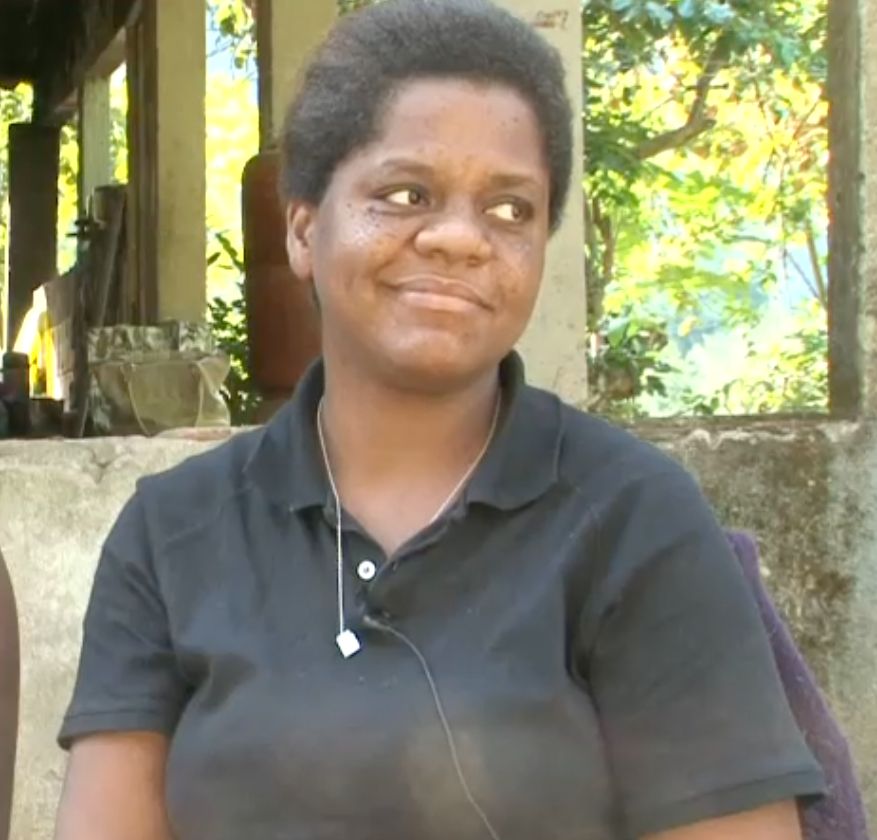
Angélica Souza Pinheiro
Angélica Souza Pinheiro (interviewed with Luciana Adriano da Silva) (1982-2016) was a Quilombola and black woman who studied Rural Education at the Federal Rural University of Rio de Janeiro and later tourism, focusing on community based tourism. She represented the Quilombo Santa Rita do Bracuí in the Forum of Traditional Communities of Angra dos Reis, Paraty, and Ubatuba, succeeding in creating quilombola schools. The GFP staff note with sadness the death of of Angélica in 2016.
Keywords: rural women and land reform, racial identity, education, reform of domestic/family roles
Media: Transcript (English, Portuguese), Video, YouTube Video (Portuguese, English Subtitles), Name Pronunciation Audio
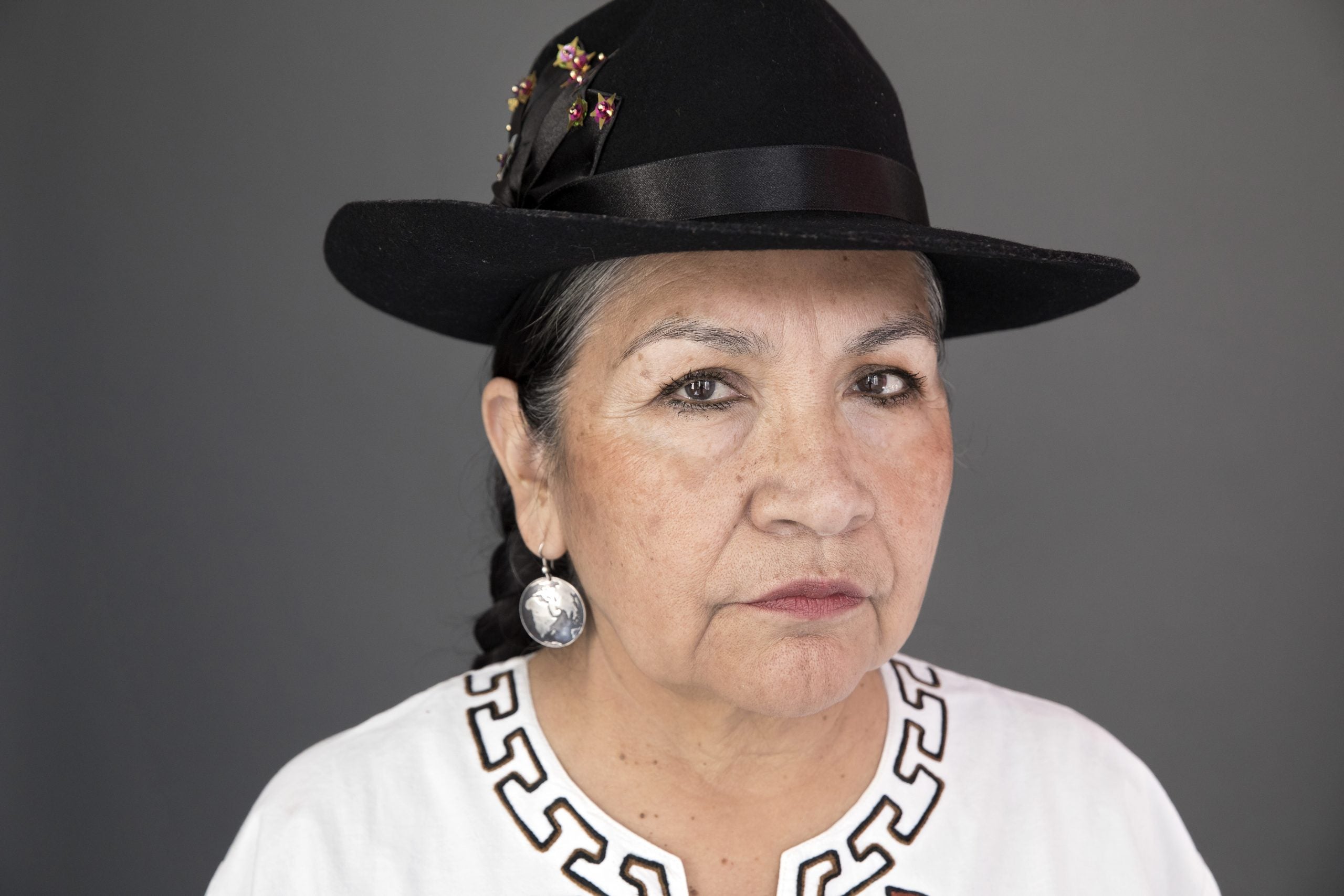
Tarcila Rivera Zea
Tarcila Rivera Zea is a Quechua activist who has dedicated nearly 40 years of her life to defending and seeking recognition for the indigenous people of Perú. She was born in the community of San Francisco de Pujas, Ayacucho, capital of the province of Huamanga, Peru. During the 1970s, she worked as a specialized secretary in archival and library science at the Ministry of Culture of Peru, studying at the Vatican City and Argentina. She also served as secretary of Martha Hildebrandt at the National Institute of Culture. Years later she collaborated as a journalist for the Pueblo Indio magazine of the Indian Council of South America (CISA). In recognition of her work in collecting testimonies of Indigenous women raped during armed conflicts, she was invited to pursue specialization courses in human rights at the Institute for Social Studies (ISS) in The Hague, The Netherlands, and the International Center for Education in Human Rights in Charlottetown, Canada. In 1987 she began to participate in international processes on the rights of indigenous peoples, as well as in United Nations conferences on Women, which led her to be invited by UN Women in 2012 to be part of her International Advisory Group on the Civil Society. Rivera Zea is the founder of the Continental Link of Indigenous Women of the Americas (ECMIA) and the International Forum of Indigenous Women (FIMI), two networks that promote the empowerment and political involvement of the world's indigenous women. As a result of all her years of activism, defending and making visible the cultures and indigenous peoples of Peru, the Permanent Workshop of Andean and Amazonian Indigenous Women of Peru and of the Center of Indigenous Cultures of Peru (CHIRAPAQ) was created. She was president of CHIRAPAQ and is currently the vice president, coordinator of the Continental Liaison for Indigenous Women of the Americas (ECMIA), member of the Board of Directors of the Voluntary Fund for Indigenous Peoples of the United Nations between 2006 and 2011. She has also collaborated in the creation of the International Indigenous Press Agency (AIPIN).
Keywords: community activism, intersectionality, racial identity, rural women and land reform
Media: Transcript (Spanish, English), Video, YouTube Video (Spanish, English Subtitles), Name Pronunciation Audio
Interviewee Photo Credit
By UN Women. https://www.flickr.com/photos/unwomen/32865257584/in/photolist-S5c359-24bQkzG-z18VSS-24bQkyu. Creative Commons. Accessed 2 February, 2021.
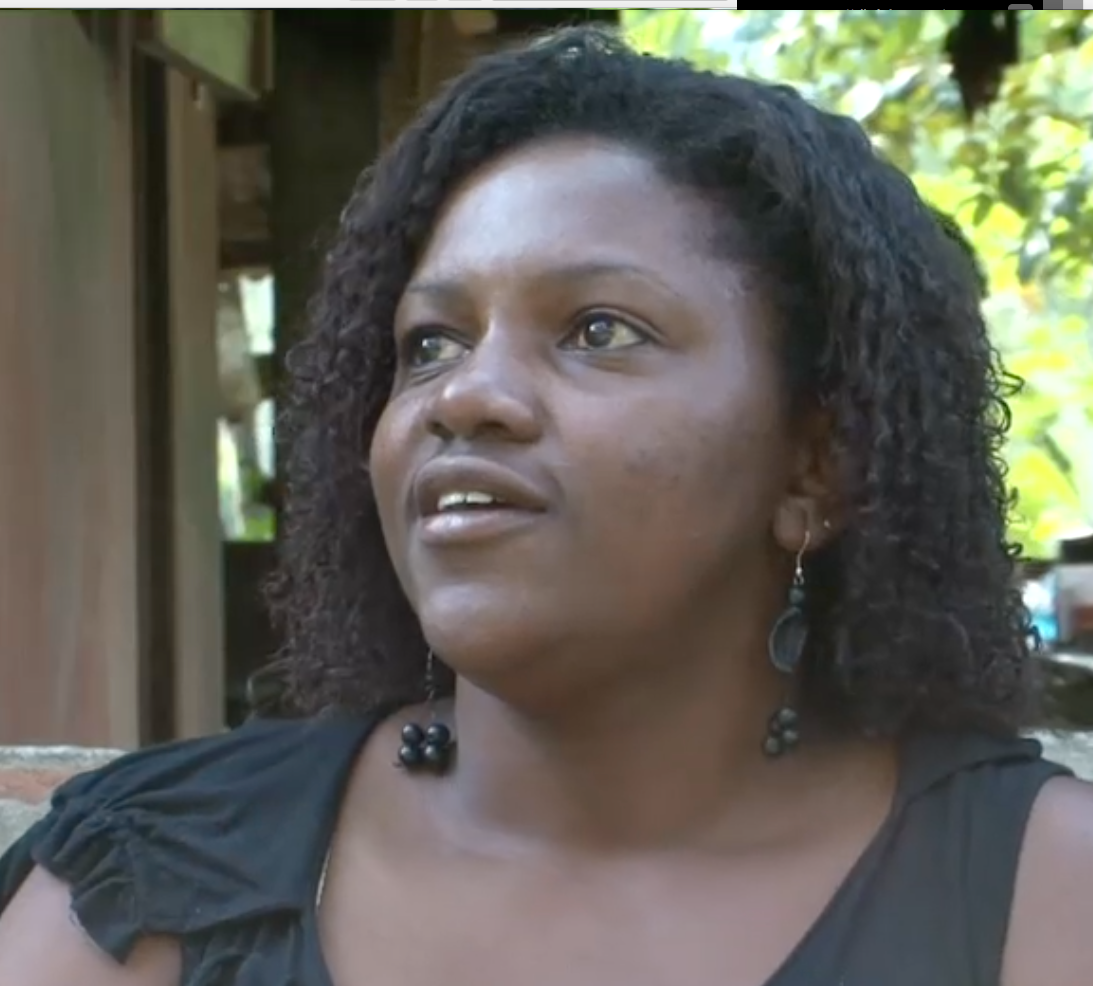
Luciana Adriano da Silva
Luciana Adriano da Silva (interviewed with Angélica Souza Pinheiro) was born in 1981 in Angra dos Reis. She studied at the Federal Rural University of Rio de Janeiro, and received a graduate degree in Rural Education. Luciana is a community leader of the Quilombo Santa Rita do Bracuí and also works with a number of other social movements and institutions.
Keywords: rural women and land reform, racial identity, education, reform of domestic/family roles
Media: Transcript (Portuguese, English), Video, YouTube Video (Portuguese, English Subtitles), Name Pronunciation Audio

Martha Heriberta Valle
Martha Heriberta Valle is an activist in the Women's Movement and in the Cooperative Movement. She joined the Revolution at an early age, and joined the organization of women farmers when the Revolution triumphed. She has been an organizer of rural women, a former elected official of the National Assembly, and at last contact was serving as president and founder of the Agricultural Cooperative Federation of Country Women Producers of Nicaragua (FEMUPROCAN).
Keywords: politics and the law, rural women and land reform
Media: Transcript (English, Spanish), Video (English, Spanish), Bibliography, English YouTube Video, Name Pronunciation Audio
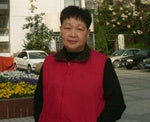
Wang Cuiyu
Wang Cuiyu, born in 1935, was the executive secretary of the Shanghai Association of Women's Studies, affiliated with the Shanghai Women's Federation. She played a leading role in a national organization for women's career development and set up a women's school in Shanghai to provide vocational training for laid-off women.
Keywords: feminist conferences, politics and the law, reform of domestic/family roles, rural women and land reform
Media: Transcript (English, Mandarin), Video (English, Mandarin), YouTube Video (Mandarin, English Dubbed), Name Pronunciation Audio
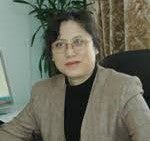
Zhang Li Xi
Zhang Li Xi, born in 1953, is President of the China Women's University, affiliated with the All-China Women's Federation. Under her leadership, the CWU created the first Women's Studies Department in China, and the first Women's Studies major.
Keywords: feminist conferences, academia and women's studies, gender-based violence, intersectionality, politics and the law, rural women and land reform
Media: Transcript (English, Mandarin),Video (English, Mandarin), Bibliography, YouTube Video (Mandarin, English Dubbed), Name Pronunciation Audio



